Related Research Articles
Konstantin Ozgan was a leading politician in Abkhazia serving i.a. as Supreme Soviet Chairman, Foreign Minister, Economy Minister, First Vice Premier and as Chairman of the Council of Elders of Abkhazia
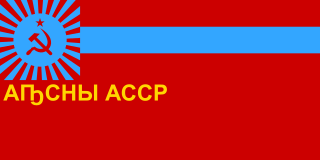
The Communist Party of Abkhazia (CPA) is a political party in Abkhazia. The party leader is Lev Shamba.
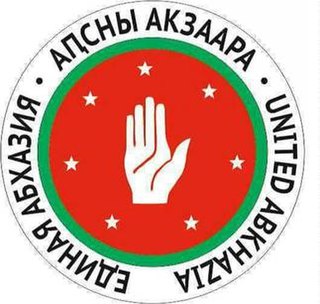
United Abkhazia is a political party in Abkhazia. United Abkhazia was founded on March 25, 2004 as a socio-political movement, with the specific goal of presenting a single opposition candidate for the October 2004 presidential elections.

Gudauta District is a district of Abkhazia, Georgia’s breakaway republic. It corresponds to the eponymous Georgian district. Its capital is Gudauta, the town by the same name. The population of the district was 34,869 at the time of the 2003 census, down from 57,334 in 1989. By the time of the 2011 Census, the population had increased to 36,775.

Ochamchira District is a district of the partially recognised Abkhazia. Its capital is Ochamchire, the town by the same name. The district is smaller than the Ochamchire district in the de jure subdivision of Georgia, as some of its former territory is now part of Tkvarcheli District, formed by de facto Abkhaz authorities in 1995. The population of the Ochamchira district is 24,629 according to the 2003 census. Until the August 2008 Battle of the Kodori Valley, some mountainous parts of the district were still under Georgian control, as part of Upper Abkhazia.
Many inhabitants of Abkhazia are Orthodox Christians, with a significant minority adhering to Islam and a growing population adopting Abkhaz neopaganism, or the "Abkhazian traditional religion". The influence of this last has always remained strong and has been experiencing a revival through the 1990s and 2000s.

Abkhazia and South Ossetia are disputed territories in the Caucasus. The central government of Georgia considers the republics under military occupation by Russia. They are both recognised as independent by Russia, Venezuela, Nicaragua, Nauru and Syria. Russia's initial recognition of the independence of Abkhazia and South Ossetia occurred in the aftermath of the Russo-Georgian War in 2008.

Abkhazia–Russia relations is the bilateral relationship between the Republic of Abkhazia and the Russian Federation. Russia recognised Abkhazia on 26 August 2008, following the August 2008 South Ossetia war. Abkhazia and Russia established diplomatic relations on 9 September 2008.

Abkhazia–South Ossetia relations are bilateral foreign relations between the Republic of Abkhazia and the Republic of South Ossetia, whose international status is disputed - they are both considered part of Georgia by the majority of the world's states.
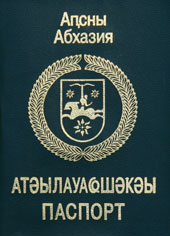
The Abkhazian passport is issued to citizens of the Republic of Abkhazia for the purpose of international travel and for the purpose of legal identification within Abkhazia. As Abkhazia is only recognised by Russia, Venezuela, Syria, Nicaragua and Nauru, for all other destinations Abkhazian citizens must use another passport for international travel.
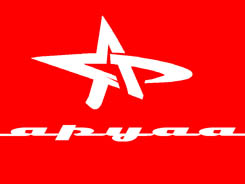
Aruaa is a social organisation in Abkhazia uniting veterans of the 1992–1993 war with Georgia. It was founded on 10 May 2007. 534 people were present at its founding congress. The first Minister of Defence of Abkhazia Vladimir Arshba was unanimously elected Chairman of the organisation, and Vadim Smyr and Mukhamed Kilba were elected Vice Chairmen. Apart from Arshba, Smyr and Kilba, ten more people were elected into the Supreme Council: Sergei Matosian, Eduard Bulia, Slavik Kuchuberia, Adler Mikvabia, Vitaly Gabnia, Gennady Margani, Kachubei Avidzba, Chingiz Bigvava, Liana Achba and Mzia Beia.

The People's Party of Abkhazia is an oppositional political party in Abkhazia led by Iakub Lakoba. Its founding congress was held on 20 March 1992, and it claims to be the oldest political party in Abkhazia.
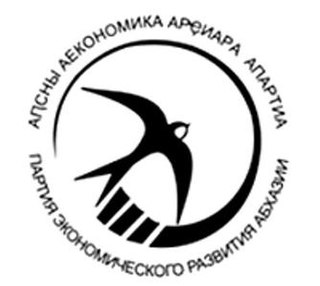
The Party for the Economic Development of Abkhazia is an opposition party in Abkhazia led by businessman Beslan Butba.

Parliamentary elections were held in Transnistria on 12 December 2010. All 43 seats of the Supreme Council of Transnistria were up for election. Transnistria uses first past the post with 43 single seat constituencies.

Valeri Ramshukhovich Bganba is an Abkhazian politician who served as the Prime Minister of Abkhazia from 18 September 2018 to 23 April 2020 and as the acting President of Abkhazia from 13 January to 23 April 2020. Prior to that he was the Speaker of the People's Assembly of Abkhazia from 2012 until 2017. He was elected as speaker on 3 April 2012 and was succeeded by Valery Kvarchia on 12 April 2017. Bganba became acting President on 1 June 2014, following the resignation of Alexander Ankvab as a result of the 2014 Abkhazian political crisis. On 25 September 2014 he was replaced by Raul Khajimba, the winner of the presidential elections on 24 August.
Abkhaz neopaganism, or the Abkhaz native religion, is the contemporary re-emergence of the ethnic religion of the Abkhaz people in unrecognized Abkhazia, a revitalisation which started in the 1980s. The most important holy sites of the religion are the Seven Shrines of Abkhazia, each one having its own priestly clan, where rituals and prayers began to be restored in the 1990s.
Caucasian Neopaganism is a category including movements of modern revival of the autochthonous religions of the indigenous peoples of the Caucasus. It has been observed by scholar Victor Schnirelmann especially among the Abkhaz and the Circassians.
The Coordinating Council of Political Parties and Public Organisations unites a number of political parties and public movements in Abkhazia who support the current Government of President Khajimba.
The Council for the National Unity of the Republic of Abkhazia (CNURA) unites a number of political parties and organisations in Abkhazia who have declared that they are neither pro-government nor pro-opposition. Three of the political parties had previously been part of the pro-government Coordinating Council of Political Parties and Public Organisations.

The Security Council of Abkhazia, abbreviated as the Sovbez of Abkhazia is the highest national security decision-making body in the Government of Abkhazia, serving as an advisory body to the President of Abkhazia. The Security Council provides way for the implementation of the constitutional powers of the President given to him/her by the Constitution of Abkhazia. It is located at the buildings on 32 Mahadzhirov Embankment.
References
- ↑ "В Абхазии создана религиозная организация "Совет жрецов Абхазии"". Apsnypress . 3 August 2012. Archived from the original on 25 November 2015. Retrieved 7 April 2013.
- ↑ Kuzmin, Denis (3 August 2008). "Совет жрецов". Echo of the Caucasus . Retrieved 7 April 2013.